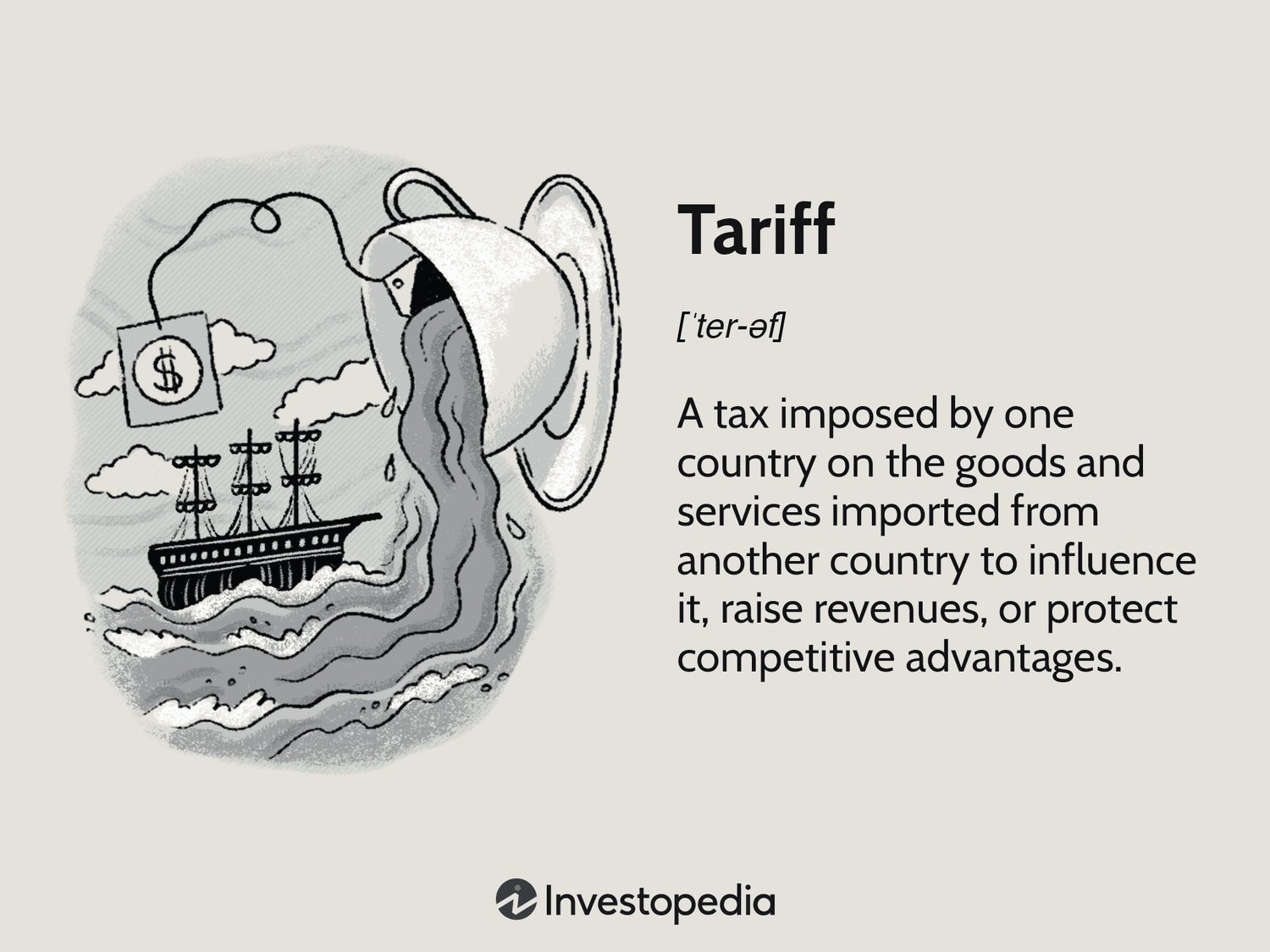Tariffs are a complex topic that often leave people puzzled about their implications on the economy. But fear not, understanding the impact of tariffs on the economy is not as daunting as it may seem. In this article, we will delve into the intricacies of tariffs and how they can shape economic landscapes. From the effects on businesses and consumers to global trade dynamics, we’ll explore the far-reaching consequences that tariffs can have. So, if you’ve ever wondered about the role tariffs play in our economy, look no further! Let’s embark on this enlightening journey together.
Understanding the Impact of Tariffs on the Economy
When it comes to international trade, tariffs play a significant role in shaping the global economy. Tariffs, also known as import duties, are taxes imposed on goods and services that are imported from other countries. The primary purpose of tariffs is to protect domestic industries, encourage domestic production, and generate revenue for the government. However, the impact of tariffs on the economy is complex and can have both positive and negative consequences.
1. Economic Impact of Tariffs
Tariffs can have a profound effect on various aspects of the economy, including employment, consumer prices, economic growth, and international trade relations. Let’s delve into each of these areas to gain a deeper understanding of their impact.
1.1 Employment
One of the key objectives of imposing tariffs is to protect domestic industries from foreign competition. By making imported goods more expensive, tariffs can help local industries by reducing competition and increasing demand for domestic products. This can lead to the growth of domestic industries and the creation of jobs. However, the employment impact of tariffs depends on the industry and the overall economic conditions. While some industries may benefit from tariffs, others may suffer job losses due to reduced exports or higher production costs.
1.2 Consumer Prices
Tariffs directly affect the prices of imported goods, making them more expensive for consumers. When tariffs are imposed, foreign companies must either absorb the additional costs or pass them onto the consumers by raising prices. As a result, consumers may experience higher prices for imported products. The increased prices can also lead to inflationary pressures, affecting the overall cost of living. However, it is crucial to note that the impact on consumer prices may vary depending on the specific goods and the availability of alternative domestic products.
1.3 Economic Growth
Tariffs can influence economic growth by shaping the overall competitiveness of industries. While tariffs may protect certain domestic industries, they can also limit access to cheaper inputs and technologies from foreign markets, hindering overall productivity and innovation. Moreover, retaliatory tariffs imposed by other countries can reduce the export opportunities for domestic industries. The net impact on economic growth depends on the balance between protectionism and the benefits of free trade.
1.4 International Trade Relations
The imposition of tariffs can strain international trade relations and lead to trade disputes between countries. When a country imposes tariffs on another nation, it often prompts retaliatory measures, resulting in a trade war. Trade wars can escalate tensions, reduce overall trade volumes, and disrupt global supply chains. This can have a far-reaching impact on the global economy, affecting not only the countries directly involved but also their trading partners.
2. Pros and Cons of Tariffs
While tariffs have their intended benefits, it is essential to consider the pros and cons before formulating trade policies. Let’s explore the advantages and disadvantages of tariffs.
2.1 Pros of Tariffs
- Protection of domestic industries from unfair competition
- Promotion of domestic production and job creation
- Generation of revenue for the government
- Strategic trade policy to support national security
- Protection of infant industries to foster growth and competitiveness
2.2 Cons of Tariffs
- Increase in consumer prices for imported goods
- Potential retaliation from trading partners
- Reduction in overall international trade
- Disruption of global supply chains
- Limitation of access to cheaper inputs and technologies
3. The Role of Tariffs in International Trade
Tariffs have been used throughout history as a policy tool in international trade. They can serve as a mechanism for protecting domestic industries, addressing trade imbalances, and promoting national interests. However, the effectiveness and appropriateness of tariffs as a policy tool depend on various factors, including the economic context, trade agreements, and the specific industries involved.
3.1 Trade Imbalances and Tariffs
Trade imbalances occur when a country imports more than it exports, leading to a trade deficit. In such cases, tariffs can be implemented to reduce imports and encourage domestic production, thereby restoring balance to trade. However, it is crucial to analyze the underlying causes of trade imbalances and consider alternative policy measures such as improving competitiveness or negotiating trade agreements to address the root causes.
3.2 Trade Agreements and Tariffs
Trade agreements play a crucial role in regulating tariffs among participating countries. These agreements aim to reduce trade barriers and promote free trade. Preferential trade agreements, such as free trade agreements or customs unions, eliminate or reduce tariffs on specified goods traded between member countries. By doing so, these agreements enhance market access and stimulate economic growth. It is important to carefully consider the impact of tariffs on these agreements and the broader trade relationships.
3.3 Tariffs in Specific Industries
The impact of tariffs varies across industries. While some industries may benefit from protection against foreign competition, others rely on imported raw materials or intermediate goods for production. Tariffs imposed on these inputs can increase production costs and reduce the competitiveness of downstream industries. Careful analysis should be conducted to ensure that tariffs address specific industry needs and consider the broader implications on related sectors.
4. The Global Perspective on Tariffs
Tariffs not only affect individual countries but also have wider implications for the global economy. International cooperation and coordination are essential in managing tariffs and promoting global economic stability.
4.1 Tariffs and Developing Countries
For developing countries, tariffs can pose both challenges and opportunities. On one hand, tariffs can protect domestic industries and foster economic development. On the other hand, high tariffs imposed by developed countries can limit export opportunities for developing nations, hindering their economic growth. Addressing the needs and concerns of developing countries in international trade negotiations is crucial to ensuring a fair and inclusive global trading system.
4.2 Tariffs and Global Supply Chains
Global supply chains have become an integral part of modern trade. Tariffs can disrupt these supply chains by increasing costs, reducing efficiency, and creating uncertainty. The interdependence of countries in global value chains highlights the importance of minimizing trade barriers and maintaining open and predictable trade policies to support the smooth functioning of these supply chains.
4.3 Tariffs and Economic Integration
Tariffs can impact regional economic integration initiatives. Customs unions and regional trade agreements aim to reduce or eliminate tariffs among member countries to promote economic cooperation and integration. The imposition of tariffs by one member can undermine the benefits of integration and create tensions within the agreement. Continuous dialogue and consensus-building are necessary to manage potential conflicts and ensure the success of regional integration efforts.
In conclusion, tariffs have a multifaceted impact on the economy, influencing various aspects from employment to international trade relations. While tariffs can protect domestic industries and support economic growth, they can also lead to higher consumer prices, trade disputes, and disruptions in global supply chains. A balanced and comprehensive approach is essential in designing effective trade policies that consider the diverse interests of domestic industries, consumers, and international trade partners.
How do tariffs affect the economy?
Frequently Asked Questions
FAQs: Understanding the Impact of Tariffs on the Economy
What are tariffs?
Tariffs are taxes or fees imposed on imported or exported goods and services, typically by a government. They are used as a trade policy tool to regulate international trade and protect domestic industries.
How do tariffs affect the economy?
Tariffs can impact the economy in several ways. They can increase the price of imported goods, making them more expensive for consumers. They can also lead to retaliatory tariffs from other countries, potentially affecting exports and harming industries that rely on international trade.
Do tariffs help or hurt the economy?
The impact of tariffs on the economy is complex and depends on various factors. While tariffs can protect domestic industries and create jobs in the short term, they can also lead to higher costs for consumers, reduced competitiveness, and an overall slowdown in economic growth.
What are the potential benefits of tariffs?
Tariffs can provide domestic industries with protection against foreign competition, allowing them to grow and invest in research and development. They can also generate revenue for the government, which can be used for public spending or investment in key sectors.
Are there any downsides to tariffs?
Yes, tariffs can have negative consequences. They can increase the prices of imported goods, leading to higher costs for businesses and consumers. They can also trigger trade wars, disrupt global supply chains, and hinder overall economic efficiency.
How do tariffs affect consumers?
Tariffs can result in higher prices for imported goods, causing consumers to pay more for products. This can have a direct impact on household budgets and reduce the purchasing power of consumers. Additionally, if other countries retaliate, it may limit the availability of certain goods or lead to a decrease in product quality.
Do tariffs affect all industries equally?
No, tariffs can affect industries differently depending on their reliance on imported or exported goods. Industries that heavily rely on imports may face increased costs due to tariffs. Conversely, industries that primarily export goods may experience a decline in demand if other countries impose retaliatory tariffs.
Can tariffs lead to job losses?
Yes, tariffs can potentially lead to job losses in industries that rely on international trade. When tariffs increase the cost of importing goods, businesses may struggle to compete and may need to lay off workers to cut costs. Additionally, if other countries respond with tariffs on export goods, it can impact industries reliant on international markets.
These FAQs aim to provide a general understanding of the impact of tariffs on the economy. It is important to note that the effects can vary depending on the specific circumstances and dynamics of each situation.
Final Thoughts
Tariffs have significant implications for the economy, impacting various sectors and consumers alike. The direct effect of tariffs is an increase in the cost of imported goods, leading to higher prices for consumers. This can result in reduced purchasing power and decreased demand for goods and services. Additionally, tariffs can disrupt global supply chains, causing uncertainty and volatility in financial markets. They also have the potential to trigger retaliation from trading partners, leading to a trade war that further hampers economic growth. Understanding the impact of tariffs on the economy is crucial for policymakers and businesses to make informed decisions and mitigate potential negative consequences.



